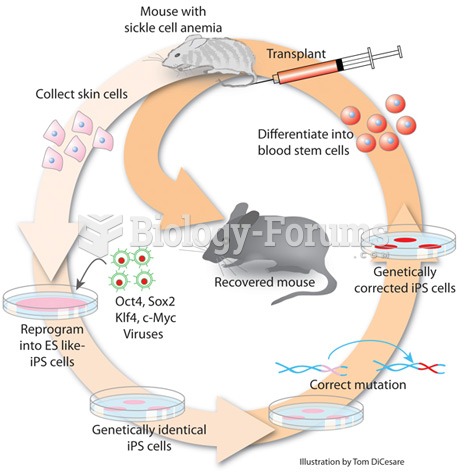|
|
|
The tallest man ever known was Robert Wadlow, an American, who reached the height of 8 feet 11 inches. He died at age 26 years from an infection caused by the immense weight of his body (491 pounds) and the stress on his leg bones and muscles.
Patients who have been on total parenteral nutrition for more than a few days may need to have foods gradually reintroduced to give the digestive tract time to start working again.
The immune system needs 9.5 hours of sleep in total darkness to recharge completely.
Studies show that systolic blood pressure can be significantly lowered by taking statins. In fact, the higher the patient's baseline blood pressure, the greater the effect of statins on his or her blood pressure.
Most fungi that pathogenically affect humans live in soil. If a person is not healthy, has an open wound, or is immunocompromised, a fungal infection can be very aggressive.
 Coronary circulation. (A) Coronary vessels portraying the complexity and extent of the coronary circ
Coronary circulation. (A) Coronary vessels portraying the complexity and extent of the coronary circ
 An intra-aortic balloon pump increases circulation to the coronary arteries and decreases the worklo
An intra-aortic balloon pump increases circulation to the coronary arteries and decreases the worklo





